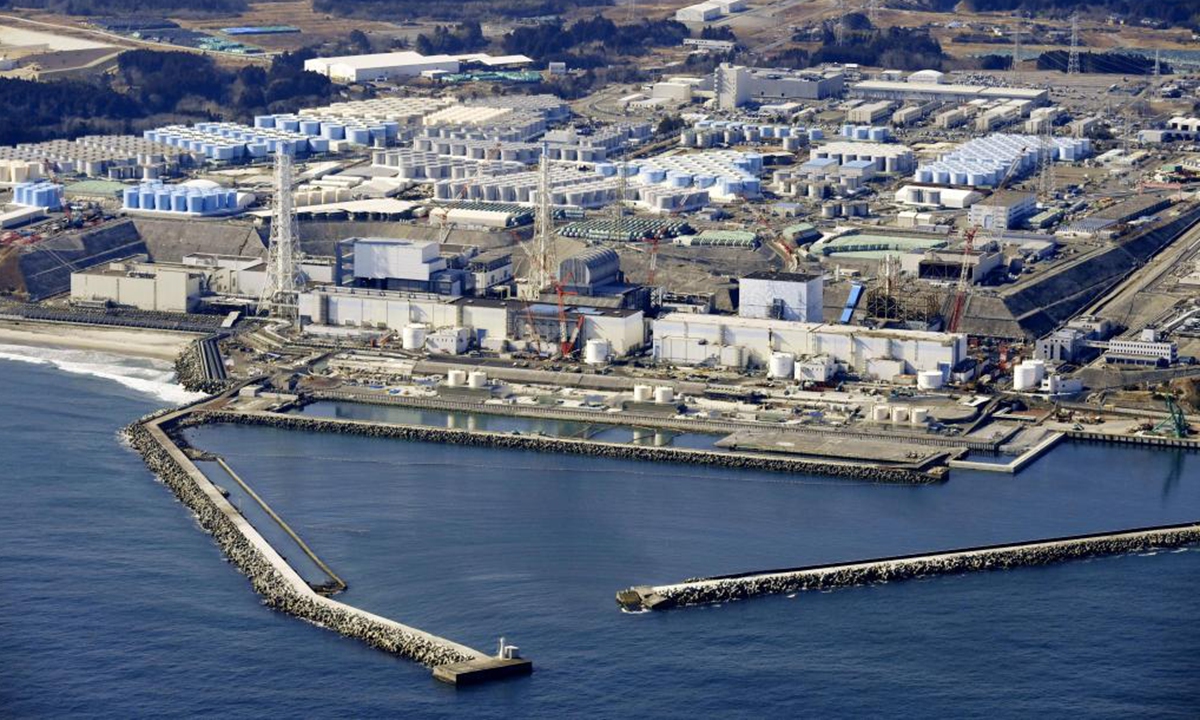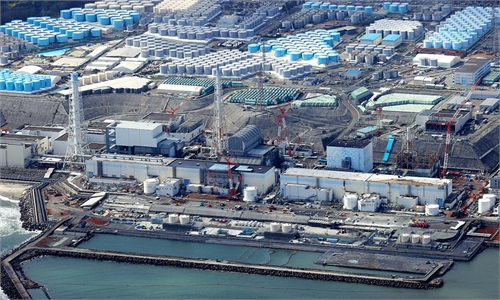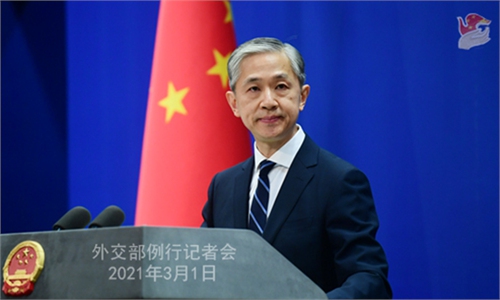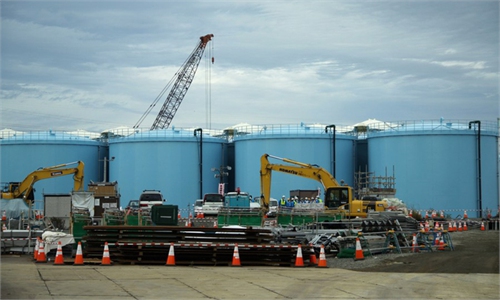IAEA to invite China to joint technical team to supervise Fukushima water dumping: Chinese FM

Tanks at the crippled Fukushima nuclear power plant store nuclear-contaminated wastewater. Photo: Xinhua
The International Atomic Energy Agency (IAEA) has confirmed that China will be invited to join a technical working group to evaluate and supervise Japan's plan of dumping Fukushima nuclear-contaminated wastewater to the ocean, the Chinese Foreign Ministry said on Monday.
China has maintained that the IAEA should establish a technical working group, including China and other stakeholders, to work on Japan's nuclear wastewater disposal plan and the follow-up international assessment and monitoring, as soon as possible, said Chinese Foreign Ministry spokesperson Wang Wenbin during a routine press conference.
The IAEA has been actively engaged in setting up the technical group, and it has confirmed to China that Chinese experts will be invited to join the group, said Wang, noting that China will fully support the follow-up work of the institution.
Rafael Mariano Grossi, director general of the IAEA, said in an interview on April 14 that the agency would manage the assistance operation with Japan and also seek assistance from other international experts to "enrich the quality of the whole operation," reported Kyodo News.
Wang said China is gravely concerned about Japan's irresponsible move, a reaction that is totally understandable and justified as China is an important stakeholder. He also urged Japan to earnestly address the concerns of China and the international community before dumping the contaminated water into the ocean.
Japan's decision of dumping the wastewater has sparked a huge backlash in the international community. Street protests in Japan, accusations from nongovernmental organization Greenpeace, and criticism and deep concerns from Japan's neighboring countries and maritime states in Southeast Asia have all drawn wide attention.
It is irresponsible for the Japanese government to unilaterally decide to handle the contaminated water by discharging it into the sea, disregarding doubts and objections at home and abroad, and without the full disclosure of relevant information and full consultation with neighboring countries and the international community, Wang said.
It not only directly jeopardizes the vital interests of people in Japan's neighboring countries, but also threatens the global marine environment and international public health security, he said.
China's Foreign Ministry suggested previously that Japan's disposal of the wastewater should be assessed and discussed under the framework of international agencies, including the IAEA, and with full consultation with its neighboring countries.
South Korean Foreign Minister Chung Eui-yong also said that Seoul will work with international organizations to respond to Japan's water disposal plan, reported KBS.
Global Times




